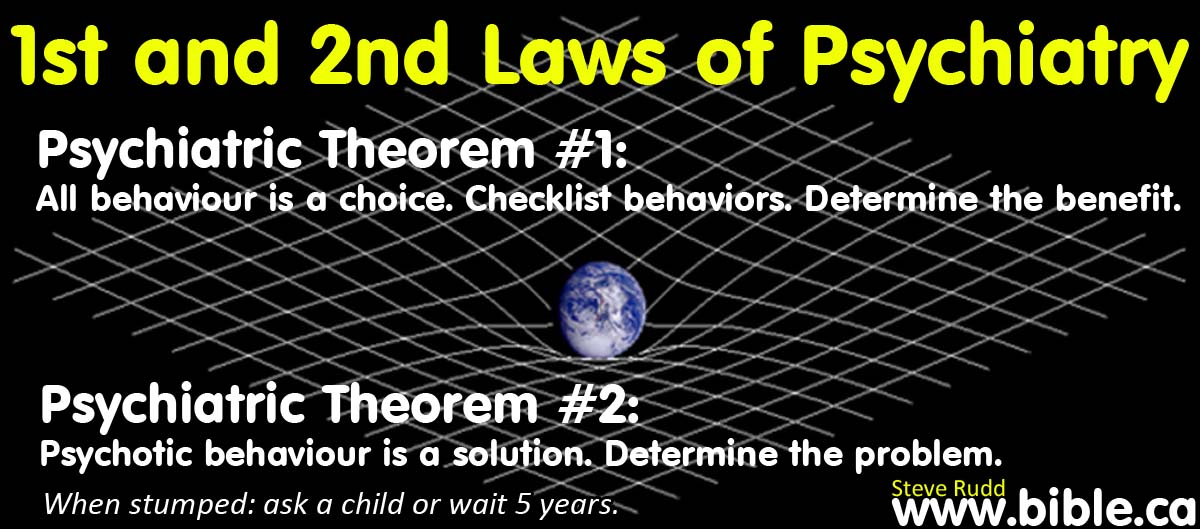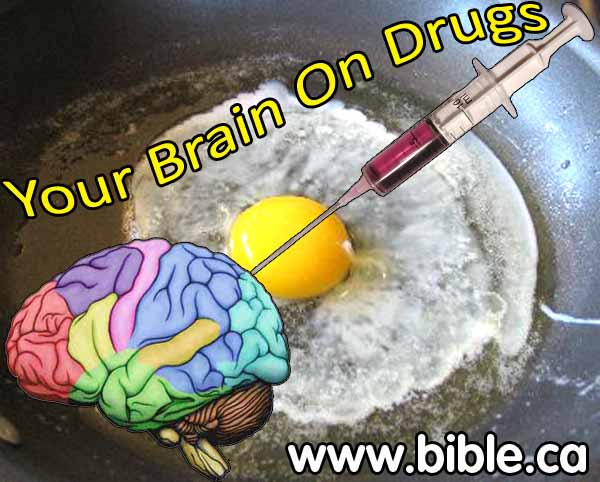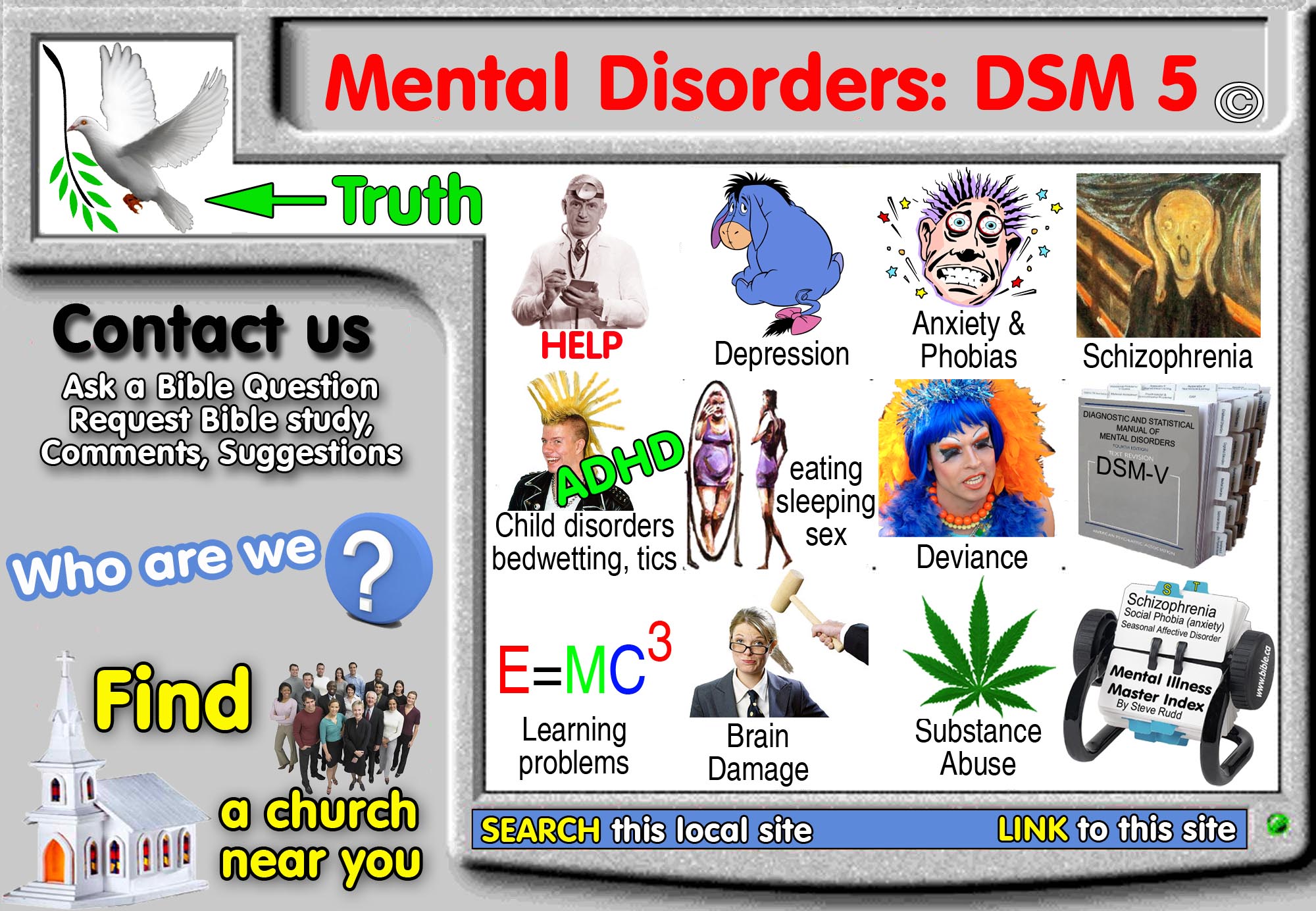The case of "Egg" (Substance abuse: drugs, depression, suicide)
Casebook of Biblical Psychiatry © Version 7 (CBP-7)
|
Based upon |
Casebook of Biblical Psychiatry© brings the principles of Biblical Psychiatry to life based upon real-world cases and familiarizes Christians with different types of situations. This practical companion volume to Biblical Psychiatry© includes not only diagnosis, but also in-depth discussions by experienced Christians for Biblical approaches to treatment. This meticulously detailed volume of dynamic real-life case studies is simply a "must read" for all clinical Psychiatrists, mental health care professionals and Christians interested in expert opinion on today's treatment approaches. Psychiatric students, educators, and practitioners—as well as social workers, nurses, medical physicians, and interested laypersons—will find this unique volume of inestimable value in their day-to-day work.
|
|
|
|
|
The case of (Substance abuse: drugs, depression, suicide) |
|
|
|
|||||
|
|
The case of "Egg" |
||||
|
|
Biopsychiatric labels DSM-5 |
Substance abuse: drugs, depression, suicide |
|||
|
|
Checklist Behaviours DSM-7 |
Pharmakia, uncontentment, anxiety, depression, high self-esteem, self-murder |
|||
|
|
Insights MMPI-7 |
|
|||
|
|
Quick Pick EDS-7.1 |
Sources of personal trauma: I have a Disease, I experienced Destitution. Non-Christian troubles: U.N.F.A.I.T.H F. U. L.: 1. Unhappiness, (reject the joy of heaven) 2. Narcissistic, (do not deny self) 3. Futility, (nothing matters) 4. Anxiety, (no one to trust for help) 5. Irrelevancy, (no one notices them) 6. Tasklessness, (disregard God's commands) 7. Purposelessness, (evolution: random chances) 8. Hopelessness, (death the end vs. eternal life) 9. Fear, (no one to protect them) 10. Unaccountable, (answer only to self) 11. Lovelessness (unaware that God loves them) |
|||
|
|
Self-disablement EDS-7.2 |
- |
|||
|
|
Chemical imbalance EDS-7.3 |
Yes. The first chemical imbalance was caused by the recreational drugs which clearly caused brain damage. The second chemical imbalance was caused by the drugs prescribed by the psychiatrist for depression. |
|||
|
|
Benefits EDS-7.4 |
Escape duty or life situation: EDS-7.4.4 Sympathy: EDS-7.4.5 Self-punishment for personal failures or to ease a guilty conscience: EDS-7.4.12 |
|||
|
|
Monetary EDS-7.5 |
- |
|||
|
|
Annoyance Scale EDS-7.6 |
Med |
|||
|
|
Diagnostic Laws EDS-7.7 |
Law of Narcissistic Behaviour Choice (NBC) EDS-7.7.1.NBC Law of Derivative Personal Benefit (DPB) EDS-7.7.2.DPB Law of Domino Problem Transference (DPT) EDS-7.7.4.DPT Law of Annoyance Toleration Threshold (ATT) EDS-7.7.5.ATT Law of Misfortune Culpability Aversion (MCA) EDS-7.7.15.MCA |
|||
|
|
Determine the Problem |
Was upset that he had caused himself brain damage from drug use. |
|||
|
|
Ask a Child |
He is sad that he is sick. EDS-7.7.12.PMO |
|||
|
|
5 years later EDS-7.7.LPT |
Suicide |
|||
|
|
|
||||
The case of "Egg"
An 18 year old man permanently damages his brain though recreational drugs, becomes depressed and commits suicide.
Ken grew up with a silver spoon in his mouth, being from an affluent, wealthy family. He had been to church a few times but rejected Christianity from a young age because Darwinian evolution was a scientific fact he learned in school.
His drug problems started at age 16 when he was attending grade 9 in a public school in a major city center that had a strong drug culture. He had become rebellious to his parents, was failing his classes and had several brushes with the police. After two years of turmoil, Ken's parents were looking for a way to correct his problems. A solution was proposed, that involved sending Ken to a strict and exclusive preparation school hundreds of miles from home to live, board and learn. The school advertised that it specialized in working with kids with drug problems and assured the parents they had special oversight programs in place to guarantee success. This school had classes starting in grade 6 through high school. His parents were assured by the school officials that they could turn Ken around and that he would be associating with positive motivated fellow students, unlike his current circle of friends. Their strict codes and "boot camp" environment would also be an instant fix for Ken's involvement in drugs. He began grade 11 at this new school at a cost of $28,000 per year.
Ken's parents had no idea that the school's sales pitch of "oversight" was at variance to reality. Little did they know that this "rich boy's prep school" had a much worse drug problem on campus than the public school. Even worse, there was almost no oversight by the school outside class room hours or weekends. Without any direct parental oversight, Ken was free to became entrenched in his new found drug culture among the students unhindered.
Here was a school with no oversight filled with "rich kid" that had lots of spending money. The business was so lucrative that the drug dealers had actually fought for control of who supplies drugs to the school. Students enjoyed the red carpet treatment with elite and preferential drug delivery services from the dealers.
In the spring of his first year at this school, Ken's parents got a call that he in the hospital recovering from a severe drug overdose. He had been a heavy drug user and been missing a few classes a week, for months. While in class, he was often stoned, but the teachers hadn't noticed.
|
The psychiatrists said the drugs "fried his brain", permanently altering his brain chemistry which induced involuntary depression and suicidal thoughts. The differential diagnosis, however, is more complex than this simplistic Biopsychiatric etiology. |
Ken was forced to drop out of high school with only grade 10. His parents put him in a drug rehab program which he successfully completed. He never did recreational drugs again.
However, it was clear that Ken had suffered brain damage from his drug use. He was lethargic, had a dementia-like memory loss, confusion and disorientation, concentration problems and a general IQ reduction of 25%. Ken was fully aware of this reduced cognitive functionality in his day to day life.
He had a string of menial jobs and continued to live at home in the lap of luxury. Ken became depressed, but found happiness when he met a woman whom he married with whom he had one child. Ken could see that his "welfare tradition" wife did not fit in well the upper class lifestyle of his parents. Ken had come to his senses and said, "If only I had listened to my father and obeyed him when I was 15, I would not be in this current situation. But it is too late to go back. I have damaged my brain." He continued carrying on a full time job and was working hard at climbing out of the hole he had dug for himself.
In spite of his effort and new goals, He was still living in his parent's home with his wife and child, doing minimum wage jobs because he had no education, married to a woman who, from a social point of view, was only a minor upgrade from living with a cat. He found that her dysfunctional background, unmotivated laziness was an astounding contrast to the life he could have had. But he had accepted this and was moving forward, accepting responsibility for his own actions.
Ken became depressed and the family consulted with a psychiatrist who told them that Ken was had an undiagnosed mentally illness because he had fried his brain on drugs. It was explained to them that the drugs had damaged his brain causing a chemical imbalance. Ken told he was diagnosed with a mental disorder and would need to be on psychiatric drugs for the rest of his life. Ken found, however, that the neuroleptic drugs only reduced his overall cognitive and motor functions.
Everyone seemed to think that Ken was doing much better. He bought everyone in his family a Christmas present out his own money and had them wrapped up under the tree. He then walked into a nearby forest and fell on a large knife, killing himself instantly. The short suicide note said he was sorry for disappointing his parents by "screwing up his life".
Discussion:
A differential diagnosis is trying to determine which of several factors is the etiology (cause) of a disease or behavior. Biopsychiatry with its Darwinian evolutionary outlook sees things in overly simplistic ways because it refuses to see man as a composite of matter and spirit. This reductionist view that man is nothing more than a pile of chemicals, soups and shocks, has caused great destruction on the world who seeks their help. Chemical psychiatry, would say Ken had a mental illness that led him to take the drugs in the first place, which was compounded by the physical damage of the brain. His depression was involuntary, since his brain was out of balance and his suicide was essentially involuntary, since biopsychiatrists reject man has any freewill.
In fact, there are two distinct factors involved in the case of Egg.
1. The physical damage Ken did to his brain through drug use.
2. His choice of becoming depressed and suicide when he comprehended his self-inflicted disability.
Another key factor here, is that Ken believed in Darwinian Evolution. He was raised in a family that did not attend church or read the Bible. Ken really had limited exposure to church and the salvation from our past sins that Jesus offers us freely!
Non-Christians are at a significant disadvantage to deal with all of lives traumas and difficulties. They believe all there is, is what you see. There is no meaning or purpose in their life. There is no ultimate justice and their misfortunes are viewed as being on the short end of natural selection. Here is a list of the problems faced by non-Christians:
Non-Christian troubles: U.N.F.A.I.T.H F. U. L.:
1. Unhappiness, (reject the joy of heaven) Ken had nothing to look forward to, except this life. If only the hope of great reward in heaven had filled his heart with joy and purpose!
2. Narcissistic, (do not deny self) Atheists seek high self-esteem. Christians seek low self-esteem. If Ken had accepted with an open heart before God just how low, pathetic, worthless and useless his life was as a lost sinner, he would have come to salvation. "Humble yourself before God and he will exalt you".
3. Futility, (nothing matters) Ken viewed his life as utterly futile because of his believe in evolution. If there is not God, then life on earth is purely a random chance process without purpose or meaning. His life was no more important than that of a rock.
4. Anxiety, (no one to trust for help) Ken was anxious because he had no EFFECTIVE person to turn to for help. He rejected God's offer of help and therefore was left with nobody to help. “God is our refuge and strength, A very present help in trouble.” (Psalm 46:1)
5. Irrelevancy, (no one notices them) Ken was all alone. He never realized that God was watching him with billions of angels, just waiting for Ken to notice God.
6. Tasklessness, (disregard God's commands) Apart from mopping floors and washing dishes at the restaurant where he worked, Ken felt he had no real job that was important to do. Had he become a Christian, he could have become obedient to the great commission to "preach the gospel to every Creature". His task would be to get himself to heaven and take as many with him on the way.
7. Purposelessness, (evolution: random chances) Ken never realized the grand purpose God has for every man if they will believe in the resurrection of Christ and be baptized for the remission of their sins. The purpose God was preparing for him to do in heaven for eternity.
8. Hopelessness, (death the end vs. eternal life) Hope = Desire + Expectation. Ken had many desire for good things, but no expectation because of his brain damage. He would love to have a nice house a new car, a good job, fly around the world, go out to an expensive restaurant for dinner. Had he set his eyes to the city made without hands by God, he would have had both desire and expectation in the resurrection.
9. Fear, (no one to protect them) Ken was his own defender. He did not look to God to protect him, in spite of his own shortcomings. Christians do not suffer from anxiety because they trust in God to take care of all their problems and except whatever comes their way, knowing in the end, God is on their side.
10. Unaccountable, (answer only to self) Ken thought he was his own highest authority. He did not realize that there was a God to whom he would bend the knee in resurrection and give an account of his life on earth.
11. Lovelessness (unaware that God loves them) The world is an ugly place and those without God feel unloved. Christians know that they are truly loved by their Creator and Father. Had Ken become a Christian, he would have been filled with the love of God which would have given him joy, happiness, contentment and purpose.
If Ken could have somehow come to faith in God through reading the Bible with an open heart, perhaps he could have seen how important and precious his life was to the God who unconditionally loved him and offered him great reward in the next life. The love, forgiveness and hope that Jesus offered Ken, could have prevented his suicide.
Ken had all 11 Non-Christian troubles: U.N.F.A.I.T.H F. U. L. which is a deadly combination. If he had become a Christian is it very unlikely he would have committed suicide.
Ken needed someone to extend a hand of unconditional love. If someone had given Ken their phone number and said, "call me any time, any day, even 3 AM, and I will come see you in person if you like", it is unlikely Ken would have committed suicide. But in a selfish world without God, Satan's grip was so great that Ken was deceived into thinking suicide was the answer.
Benefits from behaviour: This illustrates the Law of Narcissistic Behaviour Choice (NBC) EDS-7.7.1.NBC
- Escape duty or life situation: EDS-7.4.4. Ken's depression was a sadness from his own realization that he now enjoyed a much lower standard of living, then what he would have, if had not fried his brain on drugs. His depression, therefore was not so much an escape from reality, but a comprehension of reality. His only option was to simply accept the "trauma" be content in his lower life situation. His suicide, however, was clearly an escape from this reality. Suicide is the ultimate escape when someone has given up.
- Sympathy: EDS-7.4.5. When others saw Ken depressed, they would offer sympathy, support, privilege and money. Given the life-long nature of his brain damage, such sympathy would be given for a fixed period of time, upon which time it would change to: advice like. "Just live with it. You made your bed, now sleep in it. You might as well stop feeling sorry for yourself; nobody did this to you but yourself. You have only yourself to blame." It is not clear in this case that sympathy was a motive. It may have been that Ken already knew he was the cause of his own misery and this fact caused him to be sad. If this was the case, then the only hope for Ken was low self-esteem and full acceptance of his current life situation.
- Self-punishment for personal failures or to ease a guilty conscience: EDS-7.4.12. Sometimes people kill themselves out of self-hate for choices they have made.
Diagnostic laws that are seen illustrated in the case of "Egg":
- Ken calculated that the cost of death was worth the benefit of escaping from his unhappy life situation. This illustrates the Law of Derivative Personal Benefit (DPB) EDS-7.7.2.DPB
- In solving his own problems through suicide, he created a large number of big problems for his family. While he expected to be "extinct" and "dead as an evolutionary rock", his family was deeply hurt, sent into months of mourning and feeling guilty for the rest of their conscious lives. While Ken thought suicide would end his suffering, it marked the beginning of a lifetime of suffering for his family who survived him. This illustrates the Law of Domino Problem Transference (DPT) EDS-7.7.4.DPT
- When Ken's depression annoyed his family enough, they sought relief from a psychiatrist by having him drugged. When Ken's unhappy life situation annoyed him enough, he sought relief through suicide. stated This illustrates the Law of Annoyance Toleration Threshold (ATT) EDS-7.7.5.ATT
4. It is not clear if Ken had taken full responsibility for causing his own misery. Perhaps he blamed his father for shipping him off to the prep school. Perhaps he blamed his parents for a long list of "parenting errors". Perhaps he just blamed everyone else, "If you had just done this… I would not be the way I am today!" This illustrates the Law of Misfortune Culpability Aversion (MCA) EDS-7.7.15.MCA
The case of Giggles (below): In an almost identical story, the young man (Dylan) who fried his brains on heroin became a Christian, accepted his life for what it had become, put his hope in Christ and lives a self-sufficient life, works full time as a janitor, goes to church every Sunday and performs evangelism that leads others to salvation.
At age 24, Dylan was the quiet evangelist of the local church. All by himself, he would just walk up to people in the down town core of a major city and ask, "Do you want to talk about Christianity?" He came upon young 19 year old man Andy, and got this answer: "That's exactly what I would like to talk about". They talked about Jesus and the Bible and Dylan bought lunch for Andy since he was from out of town and had no money. It was Wednesday night and Dylan asked Andy to the services of the Lord's church at 7:30 PM. Andy, having never read the Bible much and unfamiliar with church, agreed... even though he thought church was on Sunday not Wednesday! It was about 2 PM and Dylan said he had to go somewhere and he would meet Andy back at the same spot at 6:30 PM and they would walk the 2 miles to church together. Dylan also gave Andy $5 for spending money.
Dylan had done this same thing countless times in the past and the people never showed up, or never came to church. He really did not expect Andy to be there when he came back... just like all the others. But to his surprise, Andy was waiting and they went to church together and was immersed for the remission of his sins three weeks later. The two men became room-mates and lived together in a two bedroom apartment for about 1.5 years. Andy has preached the gospel of Christ full time for the last 30 years and is grateful to Dylan for his unusual and rare evangelistic efforts!
Oh, one detail... Remember Dylan had that appointment and had to leave Andy? It was to see his psychiatrist. You see Dylan had fried his brain using heroin and had spent 5 years in a mental hospital. If Dylan can do evangelism... anyone can without excuse. Dylan seemed perfectly normal to Andy during the time they lived together. Sure Dylan seemed suited only for menial jobs like maintenance and kitchen clean up help, but he was fully functional. However there were times in church when Dylan would just, out of joy, just start laughing and giggling at in appropriate times.
Dylan continues to serve the Lord today but has accepted that his drug abuse in his teens damaged his brain. He also learned that after 30 years, he didn't need the psychiatric drugs that made him lethargic and scaled down his executive function. He is now totally drug free and recovering from the chemical imbalance put in his brain by the psychiatrists through their prescription drugs.
Conclusion:
These two case histories of young men who fried their brains on drugs causing irreversible and permanent impairment to their cognitive and motor functions, illustrates the difference faith in Christ can make. One man thought what he saw was all there ever would be to his life and committed suicide. The other man realized that his short time on earth was insignificant, when compared to eternal life in heaven with a perfect body and mind created by God in the resurrection.
Find me a local church so I can learn about Jesus who will give me peace, hope, love and joy.
By Steve Rudd: Contact the author for comments, input or corrections.
Send us your story about your experience with modern Psychiatry



